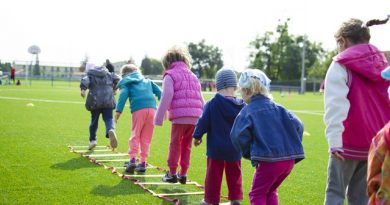Smart Ways Parents Can Encourage a Growth Mindset
Fostering a growth mindset in kids has become one of the most effective ways that parents can make a lasting impact on their children’s future success and happiness. A growth mindset, coined by psychologist Carol Dweck, is the idea that intelligence and ability can develop with hard work, learning, and perseverance. And it’s this mindset that allows kids to take on challenges, to bounce back from failure, and to view effort and practice as a way to mastery.
Teaching these beliefs is more than motivational speaking; it requires a change in language, action, and habit. Living in a world where your child is bombarded with academic stress, social media, friendships, and technology, some inner confidence and the ability to adapt is exactly what you taught them.
The right parenting style can determine how children respond to failure and success. In this post, we share helpful, hands-on approaches for raising a growth mindset at home – strategies that build not only strong learning skills but also lifelong emotional intelligence and problem-solving skills.
Understand What a Growth Mindset Looks Like in Real Life
A growth mindset isn’t one in which kids receive praise constantly just for showing up, or for getting everything perfect. It’s about experiencing something, and learning from that, and being curious and growing. Kids with a growth mindset know that setbacks are opportunities, and that intelligence is not fixed. In order to inspire this kind of thinking in our children, parents need to first understand this in the context of what really happens. That involves recognizing effort, promoting learning as a process, and emphasizing how adversities contribute to the development of skills. Fostering this type of mentality in children can lead them to be more tenacious and resourceful, in a way that will serve them outside the classroom.
Model the Behavior You Want to See in Your Child
Children learn what they live. When parents have a growth mindset themselves—by visibly accepting challenges, asking questions, and persisting—they provide real-life models of resilience. Parents who dare to admit when they don’t know something and then model how to navigate to answers teach young students how to handle the uncertainties of this world. It’s not about perfection; it’s about humanity and showing humanity can change. That modeling is far more actionable than a lecture or a system of rewards.
Focus on Effort, Not Just Results
By embracing effort over achievement, children learn that progress is more important than natural talent. When scholars hear, “You worked really hard on that,” rather than “You’re so smart,” it teaches them that hard work is valued. Praise that is both focused on effort and well-earned helps them want to stay in a challenge when things get tough. As the emphasis moves from being naturally good at something to the effort involved in getting better, children internalize that improvement is always possible with hard work and dedication.
Encourage Curiosity Over Compliance
In traditional school, giving the right answer is often the way things go, but fostering a growth mindset is a whole new ball game. Parents can also nurture curiosity by asking “why” and “how” questions to their children. When parents take real interest in what their children are learning or exploring, we reinforce the notion that curiosity and exploration matter to us. Allowing children to follow their interests (even those that don’t technically fit into the school day) can foster problem-solving skills and intrinsic motivation.
Normalize Failure and Talk Openly About Setbacks
For many kids, failure is punitive and feels like a disappointment. “When parents are open about their failures and what they learned from them, it helps to normalize the experience. By telling stories about persistence after failure, we teach kids that being a failure isn’t the end — it’s a stepping stone to success. Kids who learn how to reflect on failure instead of running from it are more likely to take calculated risks and learn from their mistakes.
Replace Labels with Language That Promotes Growth
Saying things like “You’re a math genius” or “She’s not athletic” can inadvertently lock children into fixed identities. Switching that language to growth language, like “You’re learning more every time you try” or “You haven’t mastered it yet,” leaves the door open to development. Parents don’t have to fall into the trap of boxing in kids. Instead, they can help them see themselves as learners who are in the process of becoming. This demonstrates that skills can grow with time and effort.
Create a Home Environment That Embraces Learning
Home atmosphere, speaking favorably to physical and emotional well-being, plays an immense part in shaping a growth mindset. Houses that embrace reading, adventure, and creative interests will nurture a love of learning in children. When you showcase books, art supplies, science kits, or puzzles, you are telling kids that you value discovery. Promoting family conversations around what each person learned can help transform learning into a shared adventure, not something that happens only at school.
Set Realistic Challenges to Promote Perseverance
One of the most important aspects of developing a growth mindset is learning to persist at something challenging. And parents can play an active role by designing challenges that are just beyond their child’s grasp — challenging enough to push the child out of his comfort zone, but within the zone of proximal development, to borrow a term used by Vygotsky. I will finish it if you’re still here.” Because when it is real, when it is tough, when I want to quit and I don’t, I gain those values like nothing else. Whether it’s a new instrument, a math puzzle, or a writing assignment, realistic challenges teach patience, perseverance, and determination. Helping kids navigate the frustration that almost always accompanies growth enables them to develop confidence in their ability to get stronger.
Teach Children to Reflect on Their Learning
Reflection serves as a strong force to develop more of a growth mindset. When children are asked questions like “What was hard about that/How did you figure that out?” or “What do you wish you’d done differently?” they will get an idea that learning is in their hands. Parents can help make reflection a part of everyday conversations. This prompts children to reflect more on their thinking and their approach, which, in turn, supports greater understanding and resilience.
Support Emotional Regulation and Mindful Thinking
Knowing how to handle emotions is a big factor when it comes to keeping a growth mindset. Progress can come screeching to a halt when children aren’t taught how to deal with frustration, jealousy, or embarrassment. For parents who assist their children in naming and feeling emotions, they enable them to act with their “mindful awareness” versus reactionary behavior. Resilience and Flexibility – Emotional intelligence is a necessity to develop resilience and adaptability, qualities that are required in a lifelong learner and an individual in order to grow. Getting kids to regulate their emotions enables them to navigate challenges in a composed, rather than a defeated, frame of mind.
Foster Independence and Ownership of Learning
Fostering children to develop their learning builds intrinsic motivation and self-esteem. Parents can be supportive without being micromanagers, freeing up kids to create agency and solve problems on their own. Giving children choices about how or what to learn helps them feel responsible for their growth. When kids think they own their progress, they’re more likely to be motivated and resilient, particularly when they encounter setbacks.
Encourage a Long-Term View of Success
A growth mindset takes hold when we teach children to think about the long term. Rather than concentrating only on grades or scores in the end, parents can encourage children to see how the current task connects to longer-term goals. Talking about how practicing today will make next week’s piece better—in music, in sports, in academics, and any other area of interest that children dream of— bolsters their willingness to persevere another day. This broader view cuts anxiety and creates space for a deeper engagement with growth and self-discovery.
Seek Out Educational Resources That Reinforce Growth
Books, podcasts, video, and games that center on stories of persistence, learning, and growth can reinforce what parents are teaching at home. When children watch characters in books grapple with and make progress in life, they internalize those lessons. The resources below can help parents find words and activities that fit the narrative of progress through effort. Even a visit to a classroom, or a conversation with a mentor who tells a child how she learned what she knows, can leave an indelible imprint on a kid’s mindset.
When Legal and Personal Struggles Affect Parenting
Emotional well-being and positive mindset development become even more crucial in blended family situations (i.e., a child is the result of a separation or divorce), as in custody battles and divorce. Parents facing legal battles may benefit from support systems like a family law attorney in fort lauderdale florida, who can help navigate legal stress while prioritizing a child’s best interests. Balancing legal and parental responsibilities can be difficult, but creating a stable, supportive environment remains essential.
Embracing All Types of Parenting Strengths
It is not uncommon for parents to worry about how their limitations might influence the development of their child. Can dumb parents have a smart child? Questions like these come from the same place of fear while also abandoning the empowering notions of effort, environment, and encouragement. And intelligence is not merely hereditary — it’s nurtured. All children do well when they are supported emotionally and have the opportunity to develop, no matter their parents’ level of education. What matters most is the environment a parent constructs for learning.
Legal Support and Educational Advocacy
Sometimes parents will need help from a professional to fight for a child’s educational or emotional needs, particularly when dealing with divorce or separation. A lawyer fort Lauderdale who understands family dynamics can be a valuable ally in securing stability and protecting a child’s developmental environment. And when it’s time to infuse the legal process with parenting, guidance from a professional can help maintain the child’s growth mindset journey in spite of adult conflicts.
Conclusion: Parenting as a Journey of Shared Growth
Fostering a growth mindset in children is not about having it all together as a parent — it’s all about being intentional, reflective, and emotionally present. The journey calls for small, regular gestures that communicate to children: “You’re capable of growing, and I’m here to help you grow.” From modeling behavior and encouraging curiosity to treating legal stress with gentleness, every little bit helps. When parents make the effort to facilitate resilience, effort, and self-belief, they raise not only capable learners but also flexible, empowered future adults.




